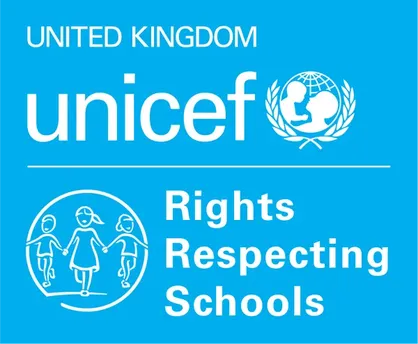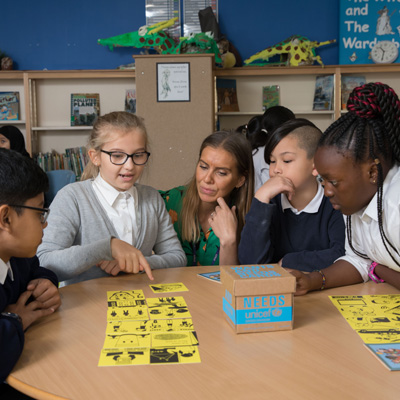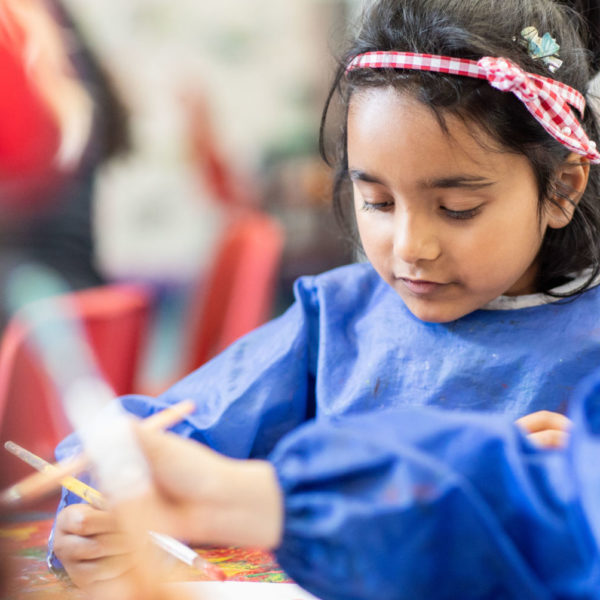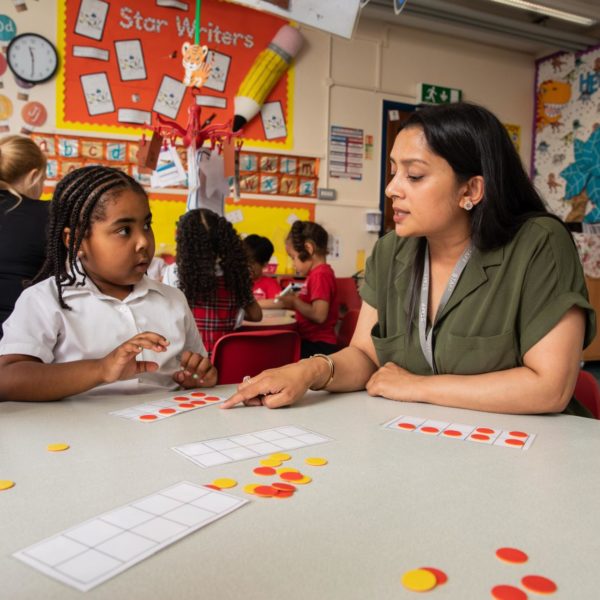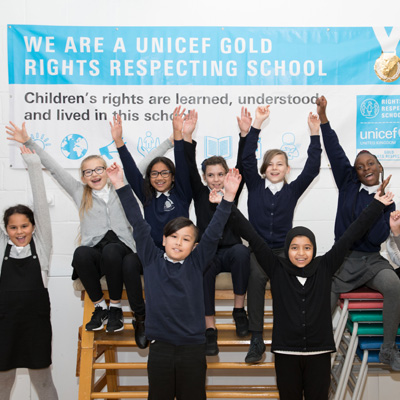The United Nations Convention on the Rights of the Child is the basis of all UNICEF’s work and its principles lie at the heart of the Rights Respecting Schools Award.
Using the UN Convention on the Rights of the Child (CRC) as our guide, we are working with more UK schools than almost any other organisation. Over 1.5 million children in the UK go to a Rights Respecting School and nearly 5000 schools up and down the country are working towards the award.
The CRC sets out the human rights of every person under the age of 18 and is the most complete statement on children’s rights treaty in history. It was adopted by the UN General Assembly in 1989 and is the most widely adopted international human rights treaty in history. The UK ratified the CRC in 1991.
What makes the United Nations Convention on the Rights of the Child so special?
The Convention has 54 articles that cover all aspects of a child’s life and set out the civil, political, economic, social and cultural rights that all children everywhere are entitled to. It also explains how adults and governments must work together to make sure all children can enjoy all their rights.
Every child has rights, whatever their ethnicity, gender, religion, language, abilities or any other status.
The Convention must be understood as a whole: all rights are linked and no right is more important than another. The right to relax and play (article 31) and the right to freedom of expression (article 13) are as important as the right to be safe from violence (article 19) and the right to education (article 28)
UNICEF is the only organisation working for children recognised in the text of the Convention.
Children do not lose their human rights by virtue of passing through the school gates.
The Rights Respecting Schools Award and the CRC
The Rights Respecting Schools Award supports schools to embed the Convention in their practice to improve wellbeing and help all children and young people to realise their potential.
The Award takes a whole school approach to child rights and human rights education. Child rights education can be defined as learning about rights, through rights and for rights within a context of education as a right.
It aims to build the capacity of children and young people as rights-holders to claim their rights, and the capacity of adults as duty bearers to fulfill their obligations. Child rights education helps adults, children and young people to work together. In this way it provides the space and encouragement for the meaningful participation and sustained civic engagement of children and young people.
Find out more about the Right to Education and the Right to Participation.
The CRC in other languages
The UN Convention on the Rights of the Child exists in other languages:
- BSL*
- Arabic*
- Gaelic*
- Polish*
- Somali*
- Urdu*
- Welsh
- Find the CRC in other languages on UNICEF website
- Find a child-friendly version of CRC in Braille on Save the Children website
* Sourced from Children and Young People’s Commissioner Scotland
